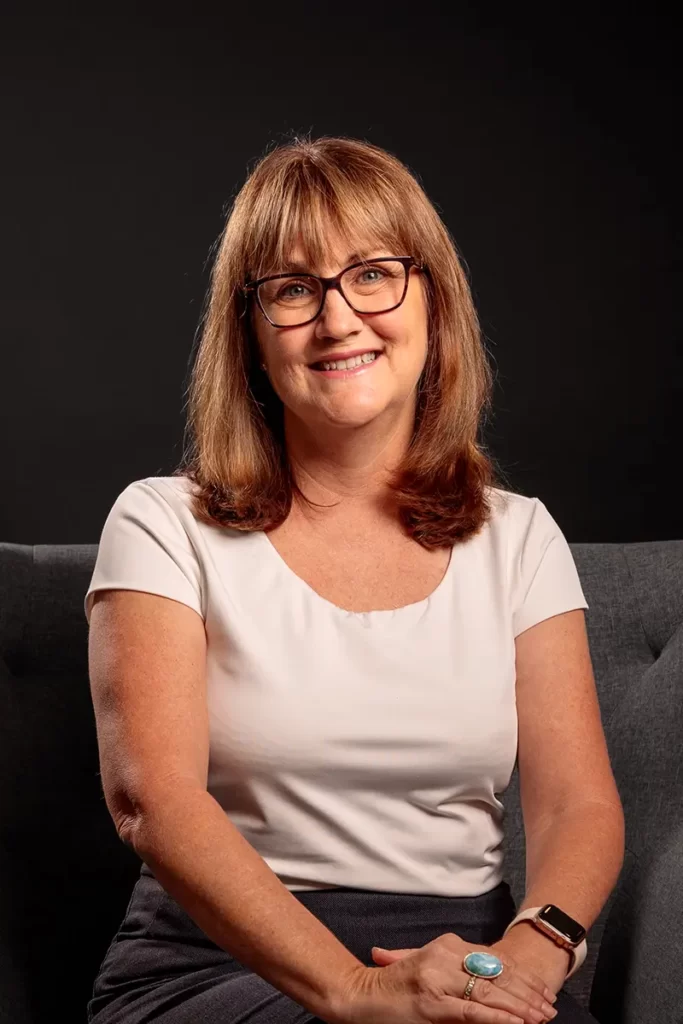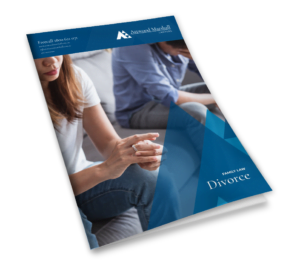Divorce
Family Law
Our experienced family lawyers are here to guide you through the complexities of divorce. Count on us for comprehensive support every step of the way, addressing various aspects such as parenting arrangements and property settlements post-separation. We will have your back during this challenging time.
If you are separated from your former spouse, and are ready to finalise your divorce, Attwood Marshall Lawyers can help you achieve the most positive outcome and assist you in navigating one of life’s most stressful events.
Divorce can have you feeling a spectrum of emotions, which can add a layer of complexity to divorce proceedings. Our experienced family lawyers can assist you with preparing and lodging, or responding to, an Application for Divorce.
Everyone’s situation is different, therefore it is important to understand that different circumstances can play a role in how smoothly an application for divorce may proceed. If you and your ex-spouse have been separated under the one roof, if you cannot find your spouse to serve them with an Application for Divorce, or if you have been married for less than 2 years, our team can help you understand the steps to take to ensure your application proceeds.
By seeking legal advice early on, your interests can be protected and you can achieve your desired outcome with as little conflict as possible.
 Download our Divorce Info Pack
Download our Divorce Info Pack
To find out more about applying for divorce, provide your details below and our Information Pack will be sent to your inbox.
FAQs
In Australia, an Application for Divorce must be filed in the Federal Circuit Court. It does not matter whether you were married in Australia or overseas, as long as you are able to satisfy one of the following eligibilities:
- You are an Australian citizen;
- You ordinarily reside in Australia;
- You have lived in Australia for 12 months immediately preceding filing the application;
- You regard Australia as your home and intend to live here indefinitely.
Australia’s divorce process is a “no fault” process and accordingly, the only requirement before filing the application is that you and your spouse have been separated for 12 months before filing the application.
You can only apply for a divorce after you have been separated for a period of at least twelve months. If you have been separated, but reconciled for a period of time, then the 12-month period starts after the reconciliation.
Australia has a “no fault” divorce process. What this means is a court does not consider which partner was at fault in the marriage breakdown. To file an Application for Divorce, you must:
- prove that the marriage is irretrievably broken and that you have been separated for a period of no less than 12 months;
- have been married for more than 2 years or attended the required counselling with the Family Court.
If you are unsure about your eligibility to file an Application for Divorce, contact our family law team to discuss your circumstances and they will be able to talk you though your options and the next steps you can take.
If you have been married less than 2 years and want to apply for a divorce, you must:
- Attend mediation with a court approved family and child mediator to discuss the possibility of reconciliation and then file a certificate completed by the counsellor with your application. You must attend this mediation session with your spouse. If you cannot attend the mediation, you must file an Affidavit setting out the reasons why counselling cannot take place.
- In special circumstances, you may file an application seeking the court’s permission to proceed within 2 years of the marriage.
So long as the court is satisfied that the marriage has broken down irretrievably and the parties have been separated for a minimum of 12 months, there are very limited grounds to oppose a divorce. If your spouse refuses to sign any documents, the court can still grant a divorce order. However, you must prove your spouse was served according to the rules. Service is the delivery of the court documents to a party after they have been filed. This ensures that all parties have received the documents filed with the court and are aware of the pending divorce application involving them.
You must prove separation if you still live under the same roof. The action of separating must involve a full and final break from the marital relationship and may include:
- the ceasing of sexual activity
- living in separate rooms
- operating separate bank accounts
- not sharing meals together
- not providing household services
- not sharing mutual entertainment inside or outside the home
- not representing to relatives, friends, or colleagues that the marriage is ongoing.
If you and your spouse are claiming to be separated under the one roof, you will need to provide evidence to the Court to prove your separation.
At Attwood Marshall Lawyers, we charge set fees for Divorce Applications. In addition to any legal costs, the Federal Circuit Court charges a filing fee for lodging an Application for Divorce, which can be reduced if you receive Centrelink benefits or have a concession card. To obtain information about the filing fee, visit www.federalcircuitcourt.gov.au and follow the links to the “Fees” page.
No. Divorce and property settlements are two different legal matters. Divorce affects property settlement matters by triggering a time limitation period, which if lapsed, can cause you difficulty in making a court application for property settlement or spousal maintenance. This time limitation period commences once your Divorce Order is final (one month and one day after the divorce application hearing date) and if 12 months after your divorce is final, you have not yet finalised property settlement, you must obtain the court’s permission before filing any court application.
Yes! It is important to review your estate plan and Will when you separate from your spouse. Any gift you have in your Will which you had previously intended to leave to your spouse will become invalid on divorce. You must revise your Will, Enduring Power of Attorney, Appointment of Enduring Guardian and superannuation and life insurance nominations when you get divorced.

Where to start when you are separating
If you’re in the early stages of separation, download our checklist for guidance on the initial steps to take and key things to consider.
Meet our Family Lawyers
In challenging family law situations, we understand the gravity of your circumstances. Having a skilled family lawyer by your side is essential for support and navigating the legal system.
Our caring legal team brings the expertise needed to guide you through the complexities of your matter, striving to help you attain the best possible outcome for you and your family.


Urgent! Update your Will and Enduring Power of Attorney and review your estate planning following separation
It is very important to review your estate planning after separation:
- Your Will needs to be changed immediately, otherwise your ex-spouse may inherit everything if you pass away;
- You need to revoke any existing Enduring Power of Attorney to your spouse and replace it with a new one;
- You should look at any jointly-owned property or bank accounts and sever the joint tenancy for property (bank accounts should be split into individual accounts);
- Change any binding nominations in your superannuation or death cover policies and/or Self-Managed Superannuation Funds;
- Check on the control of any business entities, such as trusts and companies, to see if any assets need protecting from being transferred or sold.
Book an appointment with our friendly team today to ensure your most important legal affairs reflect your current circumstances.
 Download our Divorce Info Pack
Download our Divorce Info Pack



